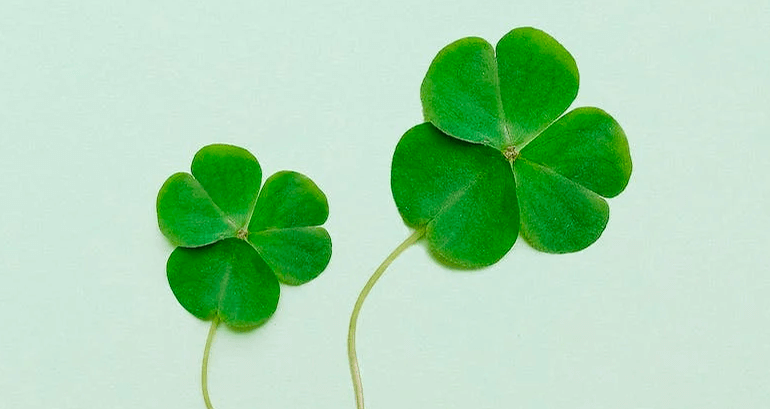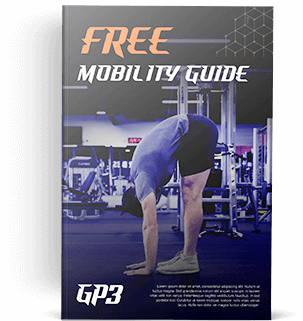Key Points:
1. Sometimes, selfish and dangerous behavior will cause harm to other people. Other times, it won’t.
2. Therefore, we should avoid judging ourselves or others based on a single action.
3. This concept forms an idea known as “moral luck.” Embracing it can help us become more empathetic and forgiving.
Estimated reading time: 5-10 minutes
Listen to this article on Spotify!
Before we begin, I’d like to share some exciting news. Today is the one-year anniversary of this blog! In that time, I’ve written over 85,000 words, published over 50 posts, and only missed a single week…due to being stranded by a hurricane after a 200-hour darkness retreat. I’m going to let myself off the hook for that one.
Some of you have been here since week one, and I can’t express enough gratitude for all of you who allow me to take up a bit of your inbox and headspace each week. Thank you so much for reading! Anyway…
Storytime
I’d like to open this week’s piece with a story/confession. Apologies to my dear mother and father, because I know they read this. When I was in college, particularly during my freshman and sophomore years, I drove fast. And often. At the time, I had a 2005 Chevy Malibu that for no reason, had a six-cylinder engine, soft suspension system, and smooth acceleration capabilities that made it incredibly easy and equally attractive to travel well above the speed limit.
So, that’s exactly what I did.
The freeway route from Marquette University in Milwaukee to my house in the Chicago suburbs had little traffic and fewer turns, which made it a dream for the speed-hungry, risk-taking teenage male brain that resided in my skull.
I’d typically cruise through the freeway sections at around 105 miles per hour, sometimes trying to push the car up to its theoretical maximum speed of 120. I never got so much as a single speeding ticket, and I’m incredibly lucky nothing worse happened.
So, why did I stop?
My initial warning came when I was driving about 90 miles per hour and a police officer passed me. They must have been pursuing a more important situation, because they didn’t pull me over, but rather gave a couple short bursts on the siren that basically communicated, “Hey, you’re acting like an idiot. Slow down!” It worked, and I did, but by the time two weeks had passed, that incident might well have never happened. I went right back to speeding.
The true wakeup call didn’t happen until I hit a small piece of debris in the road while traveling at around 110 miles per hour. The car shuddered back and forth a few times and the steering wheel became harder to manage, but I maintained control.
Though I avoided disaster, I’d officially been scared straight.
This experience was so terrifying that it shattered my “Teenage Invincibility Bubble” in one fell swoop. Though the situation probably wasn’t nearly as dire as it felt in the moment, I realized I’d dodged a major bullet. I could just as easily have lost control of the car and killed myself or someone else. Here’s the point.
I’m no better than someone who directly caused another’s death while driving recklessly.
I first came across the concept of “moral luck” a few years ago, from author, speaker, and philosopher Sam Harris. While I haven’t engaged with his content much in the past couple of years, I’ve typically found him to be thought-provoking, measured, and intelligent. Moral luck is one such highly valuable idea he addresses.
Broadly, moral luck can be defined as the reality that though we all sometimes engage in selfish and even outrightly dangerous behaviors, outcomes are not equal. However, in such cases, the ends do not justify the means. Someone whose risky behavior doesn’t end up causing any harm is no better than someone who does hurt someone while engaging in the same behavior.
Though it may be more difficult to wrap our heads around, the reverse is also true. Someone whose dangerous act killed another person is not “morally worse” than someone who did the exact same thing without taking a life.
We may find this hard to accept due to the natural desire we have to view ourselves as “a good person.” As I’ve written before, this belief is an insidious one, largely functioning as an identity trap that can lead to us denying, diminishing, or justifying our actions that cause harm.
It’s also highly relevant here. Let’s return to the example of my speeding tendencies in college.
How many times does it take?
It’s conceivable, probably even likely, that some young man around my age in the late 2000’s caused a car accident the very first time he drove faster than 100 miles per hour. Perhaps his life and others were ruined, even ended, due to this action.
I’m not particularly interested in debating the merits of moral relativism here, so hopefully we can agree that it’s generally wrong to kill someone, particularly in scenarios where the person who died posed no threat to anyone else.
Fair? Good.
So, if we subscribe to the simplistic notion that one act can make someone a bad person if it’s egregious enough, it becomes hard to debate that taking a life due to one’s own selfish and reckless behavior is “bad.” So, this person killed someone while driving; I did not. He’s a bad person; I am not. But…
We were doing the exact same thing. I may have done it more often. I’m not better than he is. I’m just luckier. Plain and simple.
So, what’s the point?
Well, I believe this outlook can make us more empathetic and more forgiving. In this age of intense polarization and demonization of those with different opinions, we could all use some more understanding. I generally hold the belief that we’re all doing our best in our current circumstances, and I’ve heard many others express the same viewpoint. This notion seems like it should foster understanding, but it tends to fall apart in practice for two reasons.
With regard to ourselves, we often harshly judge our past behaviors based on hindsight and knowledge we didn’t have at the time. With others, we typically and unfairly judge their situations based on our own circumstances. In both cases, we’re usually mistaken.
Touching on what I mentioned previously, part of the discomfort some people feel around the notion of moral luck in general stems from a deeply held identity that can be expressed as, “I’m a good person.” We like to think that there’s something within us so powerful and incorruptible that we’d always act in a morally upstanding fashion, even if we’d had a completely different upbringing or set of circumstances.
I think this is a total illusion.
“There but for the grace of God go I.”
I recently read The Book of Forgiving by Desmond and Mpho Tutu, and the above quote was a frequent theme. Despite the religious language, the message behind this quotation wasn’t necessarily about surrendering to a higher power, it was about empathy. Desmond Tutu would often remind himself of this when faced with the atrocities committed by those in power during South Africa’s Apartheid era.
Basically, he admitted that if he had been faced with their circumstances, lived their lives, and gone through everything they’d gone through, he’d also have been capable of violent racial oppression.
It takes some serious courage, strength of character, and self-awareness to acknowledge something like this. But these traits can also yield a powerful level of forgiveness, which was obviously highly prevalent in the book, given its title. It was filled with stories of people who had genuinely forgiven those who had committed murder. Some of these people had even brought themselves to forgive someone who had killed one of their family members. I can’t adequately put into words how awe-inspiring I found this.
Reverend Tutu also felt that a broad acceptance of this type of understanding was necessary for his country to heal from its past rather than becoming locked in an endless cycle of vengeance and retribution.
I’ll probably write more about key takeaways from this book in a future post, but for now, let’s bring it full circle.
It’s far easier to love, forgive, and understand when we see ourselves in others.
Acknowledging that we’ve committed selfish and dangerous acts yet avoided causing harm by pure luck forms a key step. Considering that perhaps circumstances exist in which we would act identically to someone whose actions we condemn is another. In fact, is it not a form of moral luck to be born into a situation in which we don’t have to fight or steal to obtain the very items we need to survive?
None of this is to say that we shouldn’t enforce the laws and norms of a civilized society. This notion of moral luck shouldn’t be used as a means to excuse selfish and dangerous behaviors that cause harm. Actions have consequences, and we all must be willing to face them. However, when we acknowledge the role of luck, we can finally leave behind an immature reliance on the illusory security blanket of moral superiority.Before you go, I’d love to hear from you. Have you considered the concept of moral luck before? If you’re comfortable sharing, can you recall the details of a time in which you benefited from it? Reply to this email and let me know!

